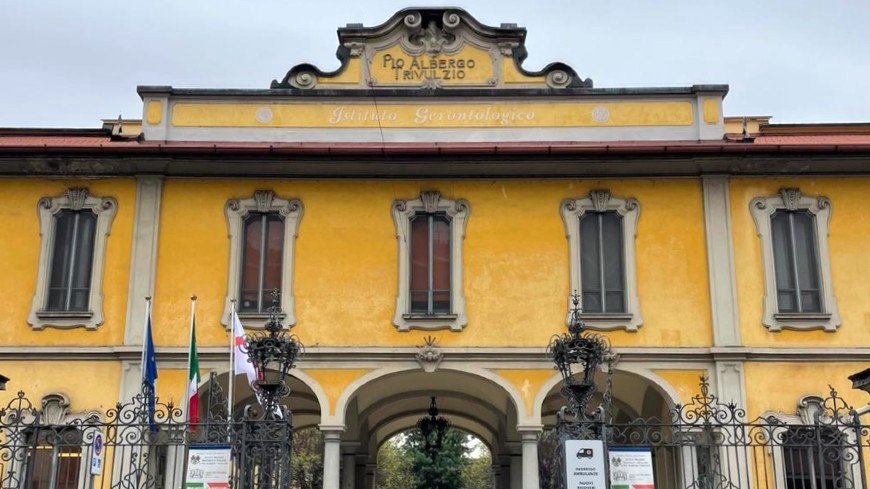During the visit, the CPT's delegation examined the treatment and conditions of detention of persons held in four prison establishments. It also assessed the treatment of patients in the psychiatric wards of four civil hospitals (Servizi psichiatrici di diagnosi e cura or SPDCs) and, for the first time, of non-autonomous elderly persons accommodated in two nursing homes (Residenze sanitarie assistenziali or RSAs).
As regards prisons, the CPT found that overcrowding was a problem, with prisons operating at 114% of their official capacity of 50 863 places at the time of the visit. Addressing the issue of overcrowding requires a broader coherent strategy, covering both admission to and release from prison, to ensure that imprisonment really is the measure of last resort. In parallel, steps need to be taken to improve the material conditions in the prisons visited.
The CPT’s delegation received many accounts of inter-prisoner violence and intimidation in the prisons visited. The Italian authorities should put in place a comprehensive strategy for preventing such violence and intimidation through inter alia the promotion of a real dynamic security approach (sorveglianza dinamica) by prison staff which would enhance control and security and make the work of prison officers more rewarding. A few allegations of ill-treatment by staff of prisoners were also received and the Italian authorities should provide improved training for staff in the use of safe methods of control and restraint, particularly of prisoners with a tendency to self-harm and with a mental disorder.
The CPT found that health care services in prisons are generally good. However, prisons do not offer a therapeutic environment and it is not appropriate for persons who require specialised psychiatric treatment to be accommodated in prison. Also, prisoners assessed as being at high risk of self-harm or suicide should be accommodated in safer cells.
Regarding women in prison, the Italian authorities should take active steps to develop a gender specific approach. More specifically, the material conditions in the prisons visited should be improved and, women with a mental disorder should be provided with a structured programme of activities and the staff working with them better trained. There is also a need to develop a clear policy for the management of transgender persons in prison. The CPT found the transgender women it met in prison were often accommodated on male wings where their specific needs were not catered to.
With respect to restrictive measures and separation regimes, the CPT calls for a series of steps to be taken such as the abolition of the measure of court-imposed solitary confinement under Article 72 of the Criminal Code known as isolamento diurno, and the review of the management of prisoners subject to the “41-bis” regime
In the SPDCs (Servizi Psichiatrici di Diagnosi e Cura) visited, mental health staff exhibited a positive and caring approach, although some sporadic episodes of verbal abuse and derogatory comments by staff were reported. The SPDCs visited generally provided satisfactory living conditions. One deficiency was that patients had access to fresh air only in secured terraces and did not benefit from unrestricted access to fresh air.
The CPT is critical of the unclear legal framework governing the application of mechanical restraint to psychiatric patients in a state of severe agitation, which permitted patients to be restrained for as long as nine days and for such a measure to be repeatedly applied.
The report also notes with concern that the procedure for the imposition of a TSO (Trattemento sanitario obbligatorio) continues to follow a standardised and repetitive format, that the guardianship judge never meets the patients in person and that patients are still not informed of their legal status.
As regards nursing homes, the CPT notes that, in view of the restrictions associated with Covid-19 (in particular, deprivation of access to fresh air, reduced rehabilitative and recreational activities and family visits) and the lack of viable alternatives in the community, the residents of the two RSAs (Residenze Sanitarie Assistenziali) visited could be considered to be de facto deprived of their liberty. In particular, the Committee noted that the restrictions in place continuously since February 2020 in the two RSAs visited had a gradual and detrimental effect on the mental and somatic health of the residents. In the CPT's view, the Italian authorities should take urgent measures to alleviate the restrictions in place by improving access to physiotherapy and rehabilitation activities and to ensure that, in the future, a less restrictive interpretation of the applicable rules be pursued, in the light of clear scientific evidence and the specific epidemiological circumstances. Recommendations are also made regarding the need to improve the material conditions in some wards of the Istituto Palazzolo RSA, to increase the number of nursing staff and to adopt a national regulation on the use of means of restraints on residents of RSAs.
In their reply, the Italian authorities provide information on the measures taken in response to the CPT's recommendations.
Read the report (English only)
Read the executive summary (in English, in Italian)
Read the response (English only)
The CPT and Italy



